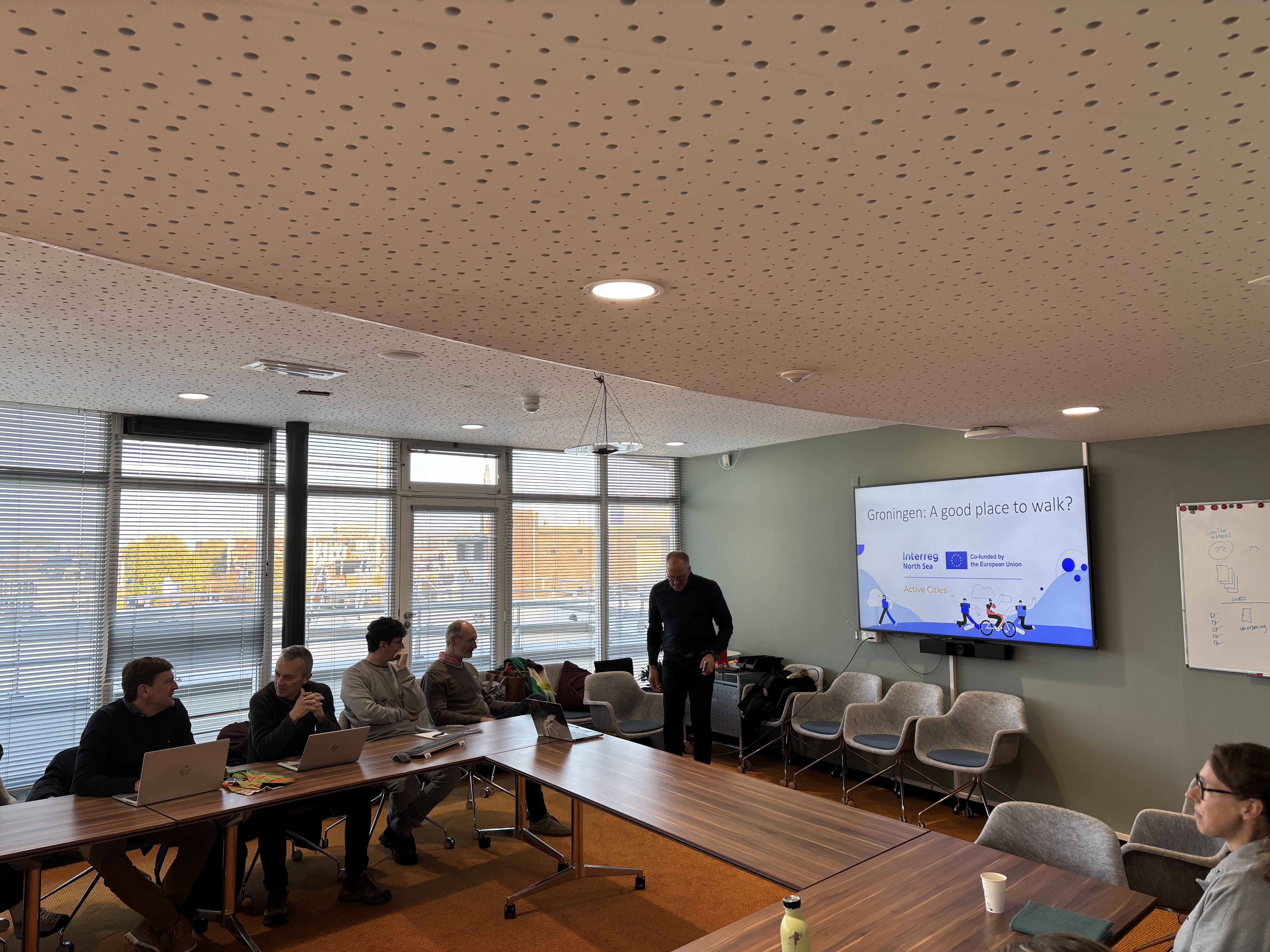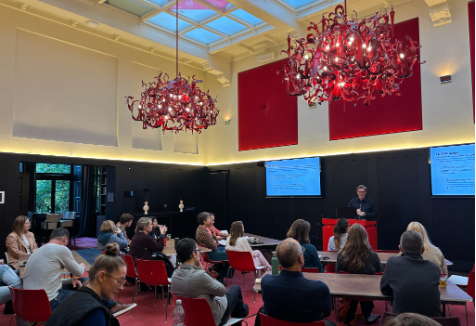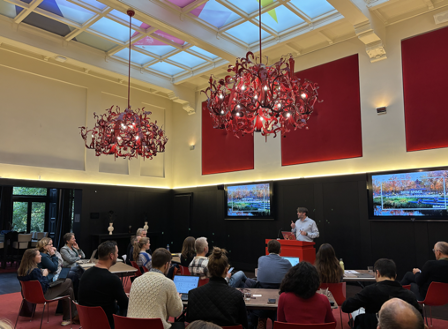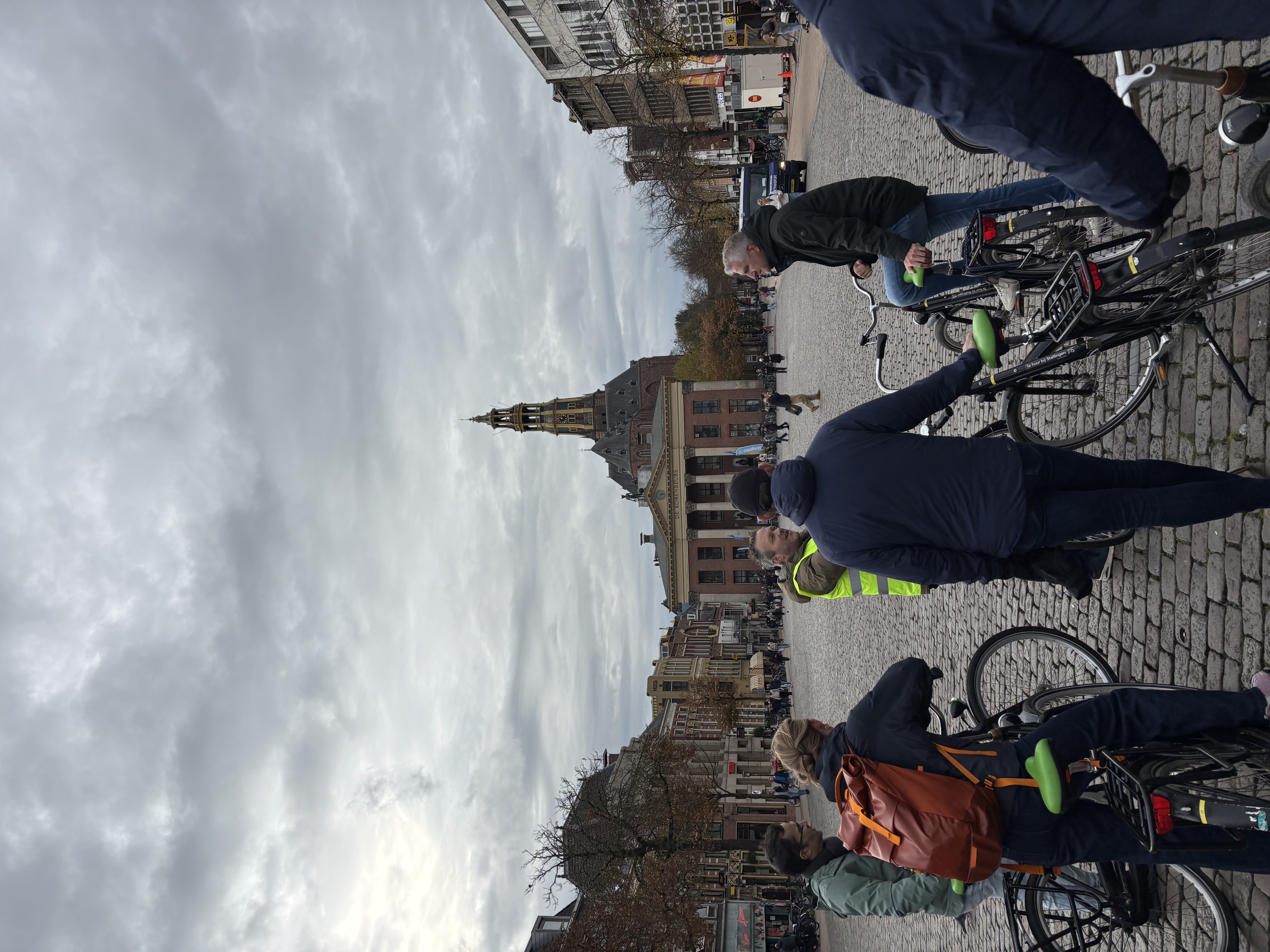The Active Cities project partners recently concluded their extensive city tour with a packed three-day visit to the vibrant city of Groningen during last week of October.
Finalising Milestones and Reflecting on Pilots
The ambitious three-day programme was primarily dedicated to finalising key project milestones, including the drafting of the final policy briefs and preparing for the upcoming POLIS conference, which will officially mark the project’s end.
With the various pilot interventions drawing to a close, a significant amount of time was set aside for reflection and the exchange of learnings. It was particularly enriching to discuss what successful elements would continue, what would be adopted for the long term, and what concrete changes had resulted. Pilot evaluations highlighted the benefits of ‘low-key’ interventions. These initiatives were seen as providing easy, step-by-step measures to start dialogue with citizens and demonstrate an alternative use of public space, often moving beyond a primary focus on mobility—a concept exemplified by our host city Groningen itself, which has developed 10 principles for quality public space.

An Introduction to walking in Groningen
The outcomes from across the partnership were encouraging: for example Groningen will now produce an internal guide on street experiments, Lund is launching a new walking plan, and Leeuwarden is creating a dedicated post for walkability responsibility.


Learning the Groningen Way
The meeting also provided an invaluable opportunity to learn from Groningen’s long and renowned history of brave urban planning decisions. The Director for Urban Planning and Policy and the City Architects delivered keynote speeches, offering a deep dive into the decision-making that shaped the unique ‘Groningen way of living’.
No Active Cities meeting is complete without walking and cycling tours. Partners explored the inner city of Groningen by foot, with a major highlight being the impressive new underground bike parking facility, which is free to use and has capacity for 1,000 bicycles! The group also visited Groningen’s pilot site in Paddepoel and the Eikenlaan crossing, offering a perfect chance to experience the excellent Dutch cycling infrastructure alongside the city’s newest urban developments.

Seeing the sights!
While this concluded the official partner meetings, the Active Cities consortium will reunite very soon at the POLIS conference. Here, they will share their comprehensive learnings with the wider European mobility community, marking an exciting final step for the project.
